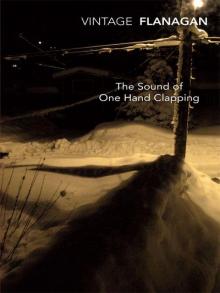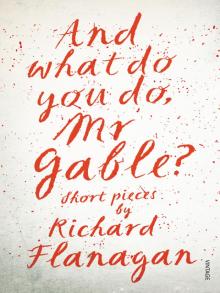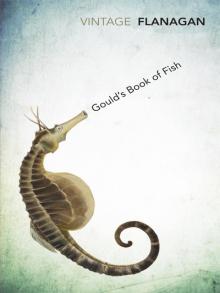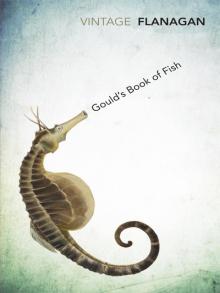- Home
- Richard Flanagan
First Person Page 3
First Person Read online
Page 3
People.
What people?
People, he hissed. He blew a derisory breath out of his nose and shook his head at my naivety in not knowing exactly who people were.
And, somehow, it was embarrassing for me not to be up to speed with things such as people the same way I wasn’t up to speed with so many things.
I am not saying that these people exist in your world, Heidl went on. But they exist nevertheless. And in our world, the real world, you have to deal with them, or you have to have someone who deals with them for you.
So?
So, maybe I was that someone.
If you mean the CIA, Siegfried, I need you to say the CIA.
I only directly worked for them in the early ’70s. Laos. The FRG. Not later. Not here in Australia.
So, what did you do for them in Laos, I asked, and off he went again with his euphemisms, his riddles, his rhetorical formulations that could mean everything or nothing.
Or both.
In Chile, he said, as if to torment me further.
Chile?
My codename, he said, was Iago.
But his tone was once more unsure, as if he was uncertain of what he should know and how much he did know. He always seemed able to evoke a mystery, but the moment you sought to penetrate the mystery, he sought to escape what it was he had just suggested. His first feint was to go with your building of the mystery, seeking to draw you in with agreement and encouragement. To have you invent his lies. And at the beginning I fell for it every time. At the end, perhaps not enough. Perhaps I became it.
I am not what I am, I said.
What?
Iago.
That’s what I said.
That’s what Iago said. Othello. But I will wear my heart upon my sleeve for daws to peck at: I am not what I am, I said.
Roger that, Heidl said. That’s me.
A great character, I replied.
A great novel!
And we were back, lost again, whirling in that vortex of it may have been or it may not yet be; it wasn’t or it is; it was or it isn’t.
I am not saying we have to know everything about your private life, I said.
No, Heidl said.
But it would be good if we could just see a little of it from your viewpoint.
Yes, Heidl said. But I don’t have a viewpoint.
Your life, then. For one thing, readers want that. And for another it makes you look more sympathetic. As someone who thinks about life, his life. The unexamined life is not worth living—
Socrates.
—far less reading, I added, surprised that Heidl had spotted the allusion.
The problem, Heidl said, is that the examined life is not worth contemplating.
There was a knock on the door, and Pia Carnevale put her head in.
Gene would like to see you, Kif, she said. Needs you to go over some copy with him.
2
Gene Paley wanted no such thing. Once more, he wanted to know how it was going.
Worse, I said.
I stood with Gene Paley in TransPac’s basement car park where he was showing me one of his executive’s cars, soon to be sold off, a recent model Nissan Skyline GT-R, a much-coveted car of its era. It would be mine for so long as I was working in Melbourne.
This is how we’ll work it, Gene Paley said, his very white, very tiny fingers that put me in mind of the paws of a marsupial softly drumming the car’s roof. I want a first chapter from you by Friday. Until then consider yourself on probation. If the chapter isn’t what we’re after, we’ll consider our experiment at an end. As you’ll have read in your contract, you’ll be paid a quit fee of five hundred dollars. If, as we all hope, the chapter passes muster, we will continue on.
It wasn’t what I had expected. Nor had I read that or anything else in the contract. I had presumed when I began that some cheque or bulky envelope of banknotes would welcome me. But that was not to be.
I wanted to ask for some cash up front, as Suzy and I had only $220 left in our bank account and I didn’t dare touch it. I didn’t know how you might go about such things without being rude. In any case, it was all starting to feel academic, as I had no idea how I’d get even a chapter out of Heidl by Friday. I felt my tongue moving in my mouth as I tried to find a way of telling Gene Paley, making what I felt was the very reasonable case for something to live on. But the publisher was so knowing, so definite—he was so many things and who and what was I?
And so I said nothing.
Gene Paley picked up on my confused silence as enthusiasm for the car. He picked up on many things. He asked what car I drove at home.
An EH Holden wagon, I said.
He laughed. Who wouldn’t? A near thirty-year-old car too commonplace to be loved, too old to be anything other than unsafe; the mechanics were so primitive even I could work on them. I didn’t tell Gene Paley of having to fibreglass a new floor in to replace the one that had rusted out. I didn’t tell him of how it leaked in the rain, how there was no heater to demist the car in winter, nor how dangerous the car was in the wet.
Hop in, Gene Paley said, patting the gleaming roof of the Nissan Skyline. Try it out.
Sitting in the bucket seat felt like being in the cockpit of an airliner. Gene Paley sat in the passenger seat, leaning forward, swaying slightly, eyes fixed on something or nothing, and I saw in him the pale indifference of a secret policeman, a serial murderer, a hedge fund manager.
If you want, Gene Paley said, I could pay you with this car rather than in cash. Yes?
Suzy and I had talked of what we could do with the ten thousand dollars—use half to make a big payment on the mortgage, buy a twin pram, a second bassinet, the hundred and one things a baby needed and of which we would need two hundred and two.
It’s not a car I’m after, I said, though not without regret. It’s cash.
Mmm, Gene Paley said, flexing his lips into what may have been a smile or may have been a threat. His gaze dropped as if gravity or boredom had defeated what small interest he had initially taken in me.
It’s not literature I’m after, he said, and his sad eyes looked up at me. It’s a page turner, Kif. And for such a book this car is a good swap.
We returned to Gene Paley’s office. He was searching his bookcases for some footballer memoirs he wanted to give me as a form of instruction and example when his phone rang. He picked up the receiver. As a distant voice crackled, Gene Paley’s face gripped in a sudden contortion.
Jez Dempster! he cried, enunciating each syllable as if he had just confronted an excruciating horror he had hoped to avoid.
With his free hand he waved me to the door.
3
At the small conference table where we worked Heidl was diminished, exhausted, prevaricating. He seemed physically small and personally insignificant. I must have seen images of Heidl a hundred times or more on TV and in the papers, but I couldn’t really recall anything about him. And even working with him it was hard to see him. I remember he didn’t have much hair and he was of indeterminate age, small, slightly stout, but apart from that—and his twitching cheek—it’s hard to say what he was. Ray sometimes called him the hobgoblin. It’s as good a description of the little sorcerer as any I can offer. From the beginning, he was always there and never to be found.
But when I returned from Gene Paley’s office and found him sitting behind the large executive’s desk he was another man. He seemed bigger, taller, more authoritative, and somehow certain. It was as if the intimations of power that the desk suggested allowed him to behave as if he himself were powerful, while I, sitting in the tub chair at the conference table, was no longer an equal, but a wretched minion, a stenographer, a subservient clerk. If it was a charade, it was one that I thought might at least be put to some good.
Heidl stood up and was about to walk back around to his place at the conference table when I suggested he just stay where he was.
That’s a much more comfortable chair than the ones here,
I said, which was true. And, besides, it’s easier for you to get your other work done.
He smiled, turned, and without any further consideration sat back down in the executive’s chair behind the executive’s desk. I realised that it was the first time I had seen him so at ease. His body stretched, his language changed, his diction grew more informal, and he seemed able to balance both small talk and the harder matter of answering my questions. And he somehow stayed larger. Not that he wasn’t still evasive—in a way that’s all he ever was—but he seemed to be finally behaving as he wanted to be behaving; being what he wished to be—which was, I suppose, someone of note, but also a conformist, a man you might miss in any crowd.
You’re doing an excellent job, Kif, he said, leaning back in the executive’s chair. I’ve told Gene how impressed I am.
Thank you, Siegfried, I said, typing as I spoke, adopting the tone of an inferior.
Behind the executive’s desk, Heidl brought his hands together and crossing his fingers cracked his knuckles as he slowly rocked in his chair. It’s not that a dog looks a king on a throne, I thought. It is that everyone agrees it is no longer a dog. Perhaps some hatred of him was already growing in my heart.
Now we really need to work, I said.
Of course. Why else would I be here?
The CIA? Tell me what that was like.
I told you.
Laos. The secret war. Tell me about that.
I was never in Laos. Who told you that?
Langley?
You expect me to tell you?
Well—yes, I said, I do. For the two hundred and fifty grand they’re paying you I do. Not all of it, but some of it. Maybe. What about Germany?
As I talked, I was desperately searching my inadequate knowledge of early 1970s Germany.
I guess you were working on Baader-Meinhof? I asked.
I knew the Jackal. Carlo, they called him. But that’s off the record. We were focused on Stasi mainly.
The Jackal is good.
What? Heidl said, and I knew that too, whatever it was, was gone.
Heidl walked over to a light switch and looked at it suspiciously.
You do know what they do if you tell? he said.
Tell me.
Laughing, he went to the executive’s desk and lifted the phone handset.
You have to understand, Ziggy Heidl said. The life doesn’t account for the achievement. Look at Papa Doc, say, he said. Augusto Pinochet, Walt Disney. The achievement invents the life it needs in way of explanation.
Walt Disney?
Exactly. That’s what I’m saying.
Why? I asked.
Why? Heidl suddenly shouted, slamming the phone down. Why! Why! It’s an age that thinks for every act there is an explanation. But there isn’t. Why this? Why that?
What do you mean?
There is no why! Heidl screamed.
4
And the great necromancer that he was, his rage vanished as abruptly as it had arisen, and in its place there appeared, as if by magic, a seeming gift.
Okay. I’ll tell you one thing, Heidl said. Just one thing. Because it’s known.
I waited. And he told me the baby goat story for the second or the first or the last time.
The goat, he said. A baby goat—what do you call it?
A kid.
He pointed a finger at me. That’s it. A kid! Well, they give you a kid to hand raise.
The CIA gave you a goat?
Roger that, Heidl said, his tone more confident. Crazy, eh? But it’s so you learn.
You have to hand feed it?
Heidl looked at me, as if in surprise.
They’re nice animals, baby goats. Smart.
Kids.
Kids? Kids are very smart. For a goat. And they bond with you. And you grow fond of them. Then one day they order you to shoot it.
To teach you to kill?
No. Well, perhaps. But that’s not the point.
Where do they tell you to shoot it? The head?
The head, he said.
He seemed unsure.
Or somewhere else?
He pondered this matter of exactly where somewhere else was for some time. His cheek twitched. Time passed. Finally, he spoke.
The stomach.
Why the stomach?
Heidl said nothing. He ran a finger up and down the desk top. He seemed to be thinking of something else, but whether it was a memory or another idea it was hard to say. With Heidl it was always hard to say. He was always working something out—you, the world, another story. Mostly another story.
So it…it dies, he said.
Slowly?
Slowly? Yes, Heidl said hesitantly. The stomach. So it dies slowly.
He seemed to be tasting his words rather than saying them. And, abruptly, his tone grew confident, even assertive.
And you have to watch.
That’s awful, I suggested.
Yes. Awful! Heidl smiled. Awful! And the baby goat makes these noises as it’s dying. Atrocious noises. And the smell! Shit, goat shit. Piss.
When was this?
Horrific noises. Like a human child in agony.
I didn’t know what to say. I couldn’t think of a question that seemed appropriate.
It’s an awful thing, Heidl said. I can’t tell you how—
When did they make you do this?
Heidl put his hands up in the air.
I’ve already said too much.
Dates.
The thing is, you know, you listen to that goat die. It sounds like—
Was it ’70? ’71?
—like…somebody who has all the skin peeled off them and you are witnessing their death. If you can imagine such a thing.
Or the late ’60s?
I can’t tell you that.
Where did they train you? Tell me that.
What does it matter where it was? he said, momentarily adopting anger. The point is there is a goat, a baby goat—
A kid.
A kid, yes, and you hear it die, and every so often the officer who has ordered you to shoot it comes in.
The U.S.?
How’s the goat going? he asks. It’s a test, you see.
Laos?
They wouldn’t get a goat in Laos. Laos was fully ops, not training. You see, they’re monitoring you.
Germany?
They don’t want psychopaths—not for my job anyway—they don’t want people who don’t feel. They want you to feel and to understand you must conquer those feelings.
I gave up with my line of questioning—with hoping to get the slightest detail that might lend the anecdote a shred of authenticity. I gave up, as I was already giving up on so many things that a real ghost writer should never give up on. But I hadn’t given up.
And at that moment Heidl looked up, looked me in the eye, and I believed. Maybe it was only a brief moment, but for that moment I did believe. And though I couldn’t have told you what I believed exactly I tried to run with what Heidl was saying, which, perhaps, I reasoned, might lead to something.
So you know everyone to them is a goat, Heidl told me. So you know that there is no one who can’t die slowly if they give the order.
The Philippines?
You don’t want to be that kid.
He paused, his pupils two black buttons stitched into his face.
And you don’t want to be the one made to watch.
5
The goat story was great. Or maybe it wasn’t that great, but it was something. But when I wrote it up, as Pia Carnevale pointed out when I showed her, it didn’t work. She said nothing seemed to anchor it. And I could see that she was right.
That it seemed untruthful when I described it yet truthful the way Heidl had told it was of no help. So many of his stories were like that, building through a strange accretion of your suggestions, your hopes and your fears, into his story—a sort of reverse charades—and yet not one of them could I make work on the page. There, his stories floated and neve
r seemed to quite come to earth; there was no dirt, no detail. And in the paper-lined grotto that was her office, stalagmites of manuscripts rising around her, Pia held up her long, dark fingers and wiggling them said, A good writer needs dirty hands, Kif.
When I returned to our office, I felt it was beyond me. I stood by the window and looked out over the industrial estate below and the sorrowful boulevards of Port Melbourne beyond. A truck whooshed by one way, a motor scooter another. Mostly there was little traffic. The city went on, as cities do, disappearing into the dirty light, blocks, suburbs, aeons away.
You’re a phony, I said, turning back around late that first Thursday afternoon to see Heidl sitting there, at what was now his desk, doing the crossword.
Really?
I said nothing. What else was there to say?
We’re all phonies, Heidl said. We all know that who we pretend to be isn’t who we are. How am I any different?
He flirted like that with destruction, daring me to push him further.
Having fought him all week for some basic details of his early life and failed, I decided a better way was not to bother with any such back story and tell him so.
I don’t care where you were born, I said.
Predictably unpredictable, he took offence. His head jerked around, only a little, but quickly.
You don’t care?
No.
Surely you want to know?
I said I didn’t. And I realised I didn’t.
He struck an attitude of astonishment. He struck many attitudes, sometimes so heavily they broke into pieces. Astonishment was one of his less successful. His face gurned like a junkyard dog’s straining at the end of its chain.
But surely you want to know where I was born? You do, don’t you?
Maybe he felt it as a challenge to his authority. Maybe he just wanted to see what he could do with me, to know how far he could push me, having argued until that moment that his birth was irrelevant, and now insisting I know.
I’ve got a new idea for the beginning, I said, though I had no ideas at all. I was out of ideas.
But you want to know, don’t you?
I don’t care, Siegfried.
And it was true. I was weary with Heidl, exhausted by his games.

 Death of a River Guide
Death of a River Guide Wanting
Wanting The Sound of One Hand Clapping
The Sound of One Hand Clapping And What Do You Do Mr. Gable?
And What Do You Do Mr. Gable? Gould's Book of Fish: A Novel in Twelve Fish
Gould's Book of Fish: A Novel in Twelve Fish First Person
First Person The Unknown Terrorist
The Unknown Terrorist The Narrow Road to the Deep North
The Narrow Road to the Deep North Gould's Book of Fish
Gould's Book of Fish